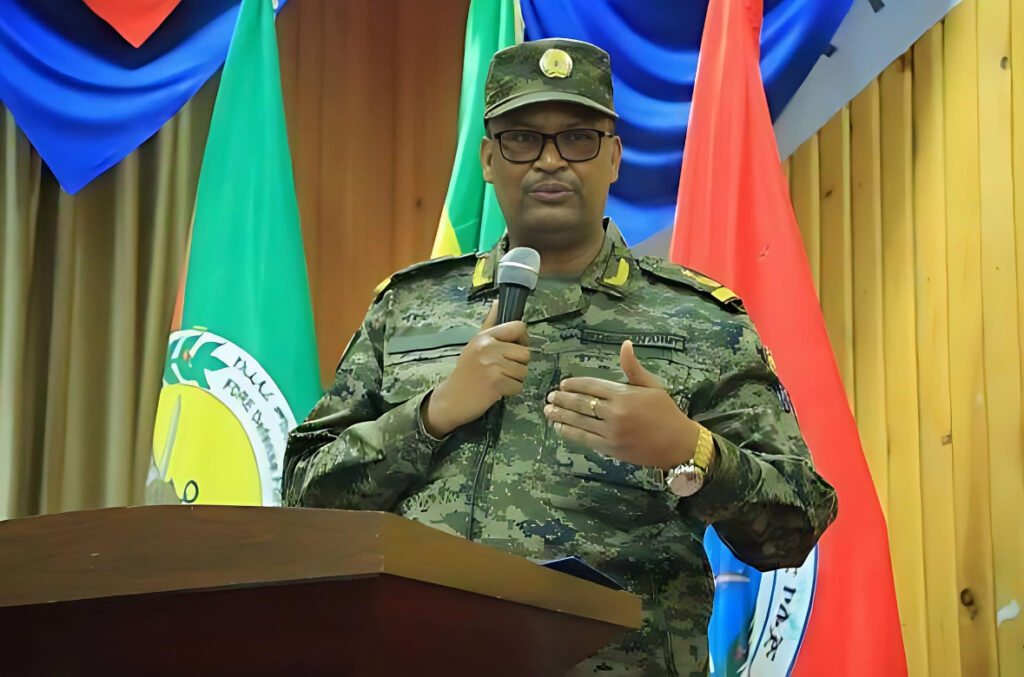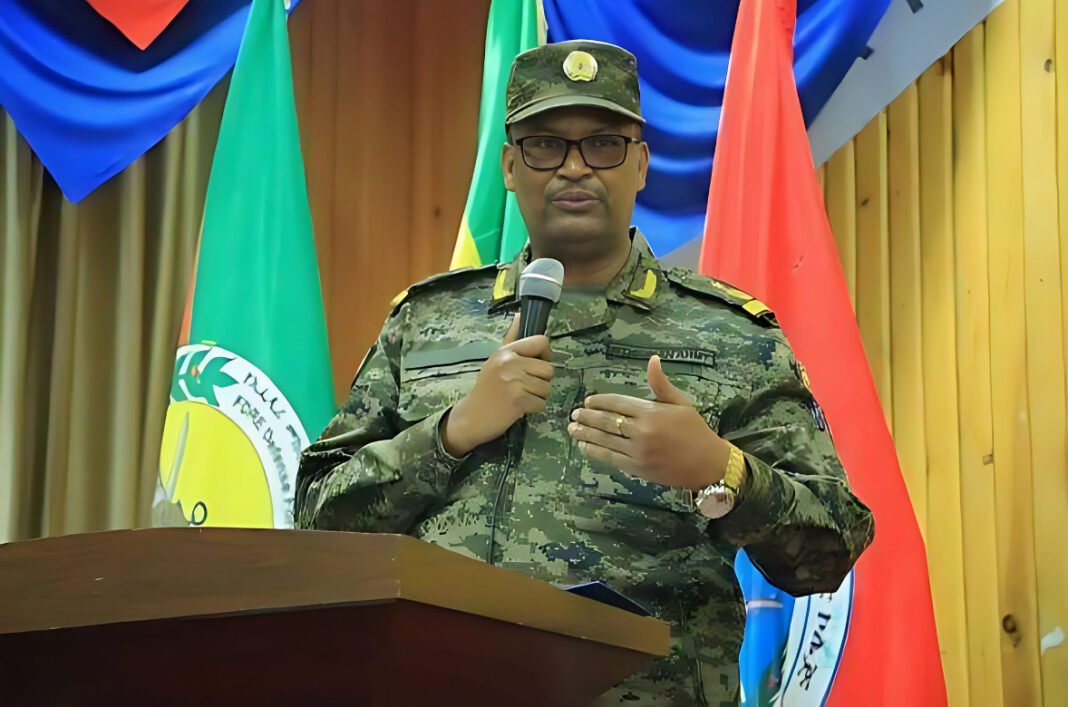By Horn Africa News
“Our eyes are on the Red Sea. Our hearts are resolute. Just as we overcame the challenges of the Ethiopian dam, we must reclaim our legal right to the sea,” declared Brigadier General Bulti Tadase, head of Ethiopia’s Military Training Academy.
His remarks came only days after Prime Minister Abiy Ahmed openly stated that Ethiopia would not back down from its position on its “right to access the sea”—the first time an Ethiopian leader has so explicitly voiced such an ambition.

Ethiopia has long lamented its landlocked status since Eritrea’s independence in 1993. While previous Ethiopian leaders often addressed the issue through diplomatic channels and behind-the-scenes negotiations, the latest rhetoric has taken a sharper, more confrontational tone.
Analysts say this signals Addis Ababa’s intention to prepare for both an ideological and political battle over maritime access and the region’s strategic trade routes.
For Eritrea, which secured independence after a brutal 30-year war, Ethiopia’s renewed claims strike at its sovereignty and reopen old wounds. The two countries fought a devastating border war between 1998 and 2000, which claimed tens of thousands of lives.
These statements also come at a time when the Horn of Africa faces multiple crises: Ethiopia’s ongoing internal conflicts, Sudan’s civil war, and escalating tensions in the Red Sea fueled by international power struggles.
What could this mean for the region?
- Ethiopia–Eritrea relations: Fears are rising of renewed confrontation between the two historical rivals.
- Ethiopia–Djibouti relations: Ethiopia relies on Djibouti’s ports for 95% of its imports and exports. The new rhetoric may be a pressure tactic aimed at securing better terms or diversifying options with other regional states.
- Domestic politics in Ethiopia: Some observers believe Prime Minister Abiy Ahmed and military leaders are using this issue to distract public attention from Ethiopia’s civil strife and political instability.
The persistent talk of reclaiming sea access raises pressing questions:
- Will Ethiopia pursue military action against Eritrea or Djibouti?
- Or is this rhetoric a political strategy to gain domestic support and bargaining power abroad?
- What role will global powers—such as the U.S., China, or Gulf nations—play if the dispute escalates?
Both the Prime Minister’s and the General’s remarks reflect a new, more assertive Ethiopian stance, one that heightens tensions in an already fragile region.
The Red Sea, long a flashpoint of global competition, now faces yet another source of instability—this time, driven by Ethiopia’s renewed maritime ambitions.





